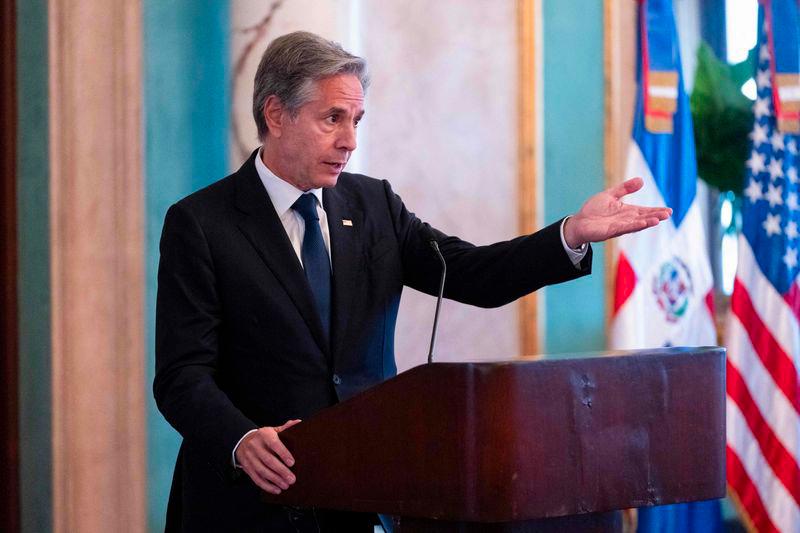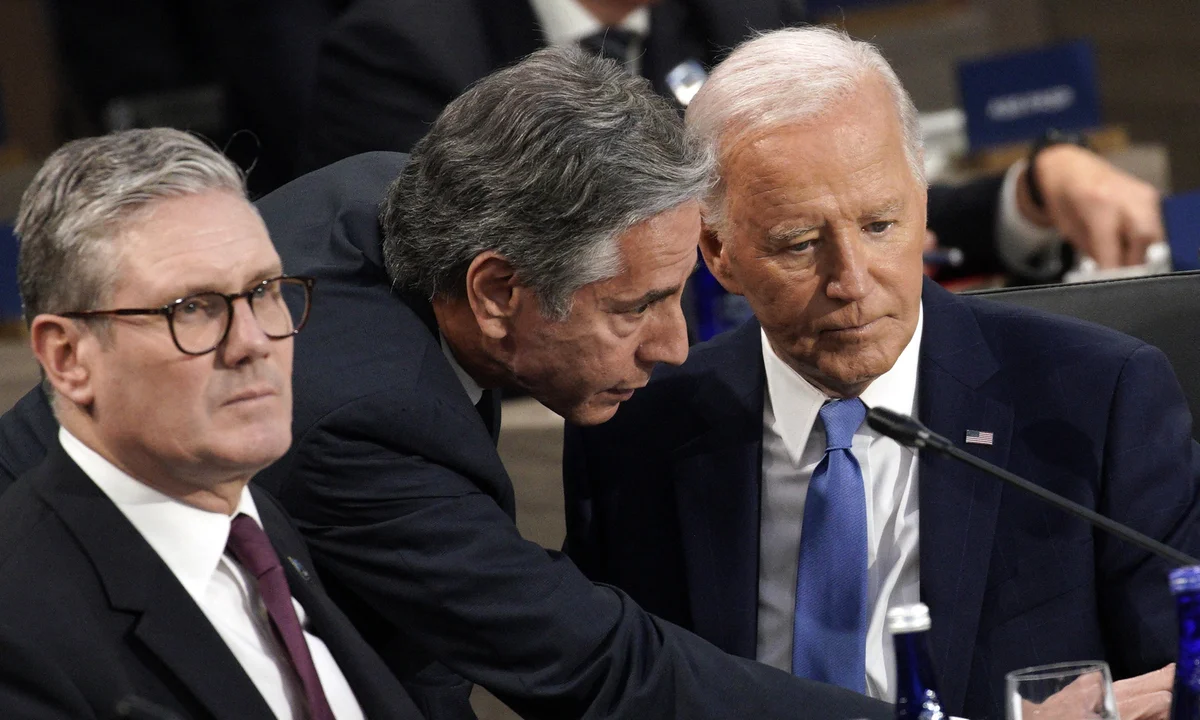Blinken is scheduled to visit the United Kingdom on Monday to engage in discussions regarding the situations in the Middle East and Ukraine.
U.S. Secretary of State Antony Blinken is scheduled to travel to the United Kingdom on Monday for high-level talks focused on two pressing global crises: the escalating conflict in the Middle East and the ongoing war in Ukraine. The visit comes at a time of heightened diplomatic activity, as world powers seek to address these critical challenges, both of which have far-reaching consequences for global stability and security.
Blinken’s Agenda: Middle East and Ukraine
Blinken’s discussions in the UK are expected to center on coordinating responses to the unfolding situations in both regions. The Middle East, particularly the Israel-Palestine conflict, has seen a surge in violence and instability. The U.S. has traditionally played a significant role in mediating peace talks and supporting Israel, but the Biden administration is also under pressure to address the humanitarian crisis and work toward a sustainable resolution to the conflict.
The trip to the UK is also aimed at bolstering international support for Ukraine as it continues to defend itself against Russia’s invasion, which began in February 2022. The war has led to massive displacement, loss of life, and global economic ramifications, especially concerning energy supplies and food security. The UK has been one of Ukraine’s staunchest supporters, providing military aid, sanctions against Russia, and diplomatic backing in international forums.

The Middle East: Urgency Amid Escalation
The Middle East, particularly the Israel-Palestine conflict, is expected to dominate much of the discussions during Blinken’s visit. Tensions have escalated between Israel and Palestinian factions, resulting in ongoing military confrontations. The U.S. administration is seeking to navigate a complex diplomatic landscape, balancing its strong support for Israel with calls for a ceasefire and greater humanitarian aid for Palestinians.
The situation in Gaza remains a key point of concern. International observers have pointed to a growing humanitarian disaster, with thousands displaced, infrastructure destroyed, and limited access to essential supplies. The Biden administration has expressed its commitment to supporting Israel’s right to defend itself, but it has also called for steps to minimize civilian casualties and increase aid to Gaza. In coordination with the UK and other allies, the U.S. is likely to explore avenues for de-escalating the violence and renewing efforts toward a two-state solution, a goal that has remained elusive for decades.
The discussions in the UK will also likely touch on Iran’s role in the region. Tehran’s influence over groups like Hezbollah and its backing of certain Palestinian factions have complicated diplomatic efforts. The U.S. and its allies are keen on curbing Iran’s regional ambitions, especially as nuclear negotiations remain stalled. Strengthening alliances and enhancing security cooperation will be crucial in managing the multifaceted challenges the Middle East presents.
Ukraine: Continuing Support Against Russian Aggression
Ukraine’s defense against Russia’s ongoing invasion is another critical topic on Blinken’s agenda. Since the war began, the U.S. and the UK have been at the forefront of efforts to provide Ukraine with the military, economic, and humanitarian aid necessary to withstand Russian aggression. Blinken’s visit will underscore the importance of maintaining international unity in the face of Russia’s actions, which have destabilized not only Eastern Europe but also global energy and food markets.
Recent months have seen Ukraine launch counteroffensives in its eastern and southern regions, reclaiming some territory. However, the war shows no signs of abating, and the winter months could further complicate military operations. Blinken is expected to coordinate with his British counterparts on ways to sustain support for Ukraine through potentially protracted phases of the conflict. This includes discussions on increasing the supply of advanced weapons, enhancing training programs for Ukrainian forces, and further tightening sanctions on Russia.
Additionally, the economic fallout of the war, particularly in Europe, will be a focal point of the talks. Energy shortages, driven by Russia’s restrictions on natural gas supplies, have placed considerable strain on European economies. Blinken is likely to address how the U.S. and UK can work together to mitigate these effects, through energy diversification efforts and continued pressure on Russia to reopen grain export routes critical to global food security.

Strengthening Transatlantic Cooperation
Blinken’s visit to the UK underscores the importance of the transatlantic alliance in addressing global crises. Both countries share a long history of cooperation, and their close partnership has been critical in responding to both the war in Ukraine and the evolving challenges in the Middle East. The U.S. and UK have coordinated closely on sanctions against Russia, military support for Ukraine, and diplomatic initiatives in the Middle East.
The visit will likely also touch on broader global security concerns, including cybersecurity, the rise of authoritarianism, and climate change. Both the U.S. and UK are committed to advancing a rules-based international order, and their partnership is seen as vital to addressing these multifaceted challenges.
Conclusion
Antony Blinken’s upcoming visit to the UK reflects the urgency of addressing two of the most pressing crises facing the international community: the Israel-Palestine conflict and Russia’s war in Ukraine. As the U.S. and its allies seek to de-escalate tensions in the Middle East and bolster Ukraine’s defense against Russian aggression, these discussions will play a critical role in shaping the international response to these ongoing conflicts. Blinken’s trip also underscores the enduring strength of the U.S.-UK alliance and its central role in maintaining global peace and security amid an increasingly complex and volatile geopolitical landscape.

